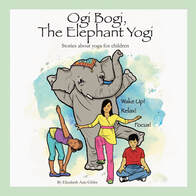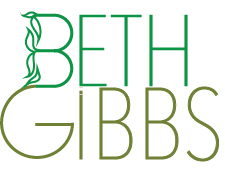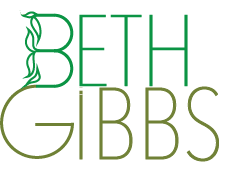ENLIGHTEN UP! a blogSelf-awareness stories: lighting our way to clarity, contentment and resilience in a complicated world.
|
 Here’s the ‘T:’ the pandemic is still with us. In-person learning is back for many school districts and the levels of stress and anxiety in children and the adults who care for them is rising at alarming rates. According to the National Institutes of Health, the current sources of stress include, isolation, school shutdowns (along with confusing and conflicted re-openings), reduced social life and physical activities, changes to routine, sleep difficulties, exposure to disharmony at home, and excessive screen use. Here’s the good news. Research shows that exercise boosts children's executive functions. Because yoga provides the integration of physical movement with breathing exercises and mental focus, it can be an ideal solution to help kids, and the adults who care for them manage increased stress levels. If you are looking for an accessible resource that helps teachers, parents, health professionals and care takers deal with this issue, read on! The pandemic (or as I call it, the pan-damn-ic) is new but anxiety and stress among children is not. Many years ago I was teaching yoga in an after-school program when one of my students was consistently disruptive in class. I asked her why she came to yoga since participation was voluntary and she didn’t seem to be enjoying herself. Her answer: “When I feel bad, I go sit on my bed and say Om, and it makes me feel better.” This child, in spite of her behavior, had made the connection between a challenge she faced and the effective use of a yoga technique as a solution. She had become a problem solver! Such a mind/body/behavior connection leads to balance on the physical, energetic, mental and emotional levels and results in a relaxed state of awareness – a key goal in yoga and a much needed one in these times of change. As adults, we often ask children who are agitated, excited, restless or upset to “sit still,” “calm down,” and “pay attention,” but we rarely, if ever, teach them the specific skills they need to accomplish those states. Yoga can help. For example:
According to the Yoga Research and Education Center, some specific benefits of yoga for children are:
Many schools and youth programs now successfully offer yoga to children as educators and program providers discover that teaching yoga to children helps them deal with stress, improve test scores and reduce disruptive behavior. Camp Courant, a summer day camp for children is the largest—and one of the oldest—free day camps in the country, serving hundreds of inner-city children between the ages of 5 and 12 (https://campcourant.org). Since 2002, Camp Courant has offered yoga classes to over 300+ children each summer. The program offers what I call, ‘anytime, anywhere easy yoga that works.’ The techniques can be integrated into any program or classroom setting within a two to ten minute time frame – no equipment or special set ups needed. The best evidence for teaching yoga to children comes from the children themselves. Here are some quotes they shared with us about their yoga experience:
 Want more information? Need a self-help gift for a child or an adult who cares for children? Find it here. Need a way to see how stress is affecting the kids in your care? You may find this stress test helpful. Questionnaire: How Resilient Are You? Re·sil·ient (riˈzilyənt) an adjective Definition: ability to become strong, healthy, or successful again after something bad happens. This test is adapted from the work of psychologists L. H. Miller and Alma Dell Smith at Boston University Medical Center. Score each item from 1 (almost always) to 5 (never true), according to how much of the time each statement applies to you. Use 2, 3, or 4 depending on how true or untrue it is for you. 1. I eat at least one hot, balance meal a day. Score____ 2. I get at least seven to eight hours of sleep at least four nights a week. Score____ 3. I give and receive affection regularly. Score____ 4. I have at least one relative within 50 miles of my home that I can count on when I need help. Score____ 5. I exercise three or more times each week. Score____ 6. I spend less than three hours a day watching TV and/or working/playing on my computer or phone. Score____ 7. I have enough energy to do all the things I need to do each day. Score____ 8. I am the right weight for my height. Score____ 9. I have enough money from my allowance and/or part-time jobs to meet my daily needs. Score____ 10. I get strength from my religious/spiritual beliefs. Score____ 11. I spend three or more hours a week playing sports, participating in after-school or social activities or working on my hobbies. Score____ 12. I have a wide group of friends and acquaintances. Score____ 13. I have one or more friends to talk to about personal issues. Score____ 14. I am in good health including eyesight, hearing and teeth. Score____ 15. I am able to speak openly about my feelings when I am angry, upset or worried. Score____ 16. I feel safe at home, at school and in my neighborhood. Score____ 17. I do something for fun at least once a week. Score____ 18. I am doing well in school and get good grades. Score____ 19. I drink less than three cups of coffee, soda or energy drinks a day. Score____ 20. I take quiet time for myself at sometime during the day or evening. Score____ Totaling Your Score 1. Sub-Total Score _______ (add up all your scores here) 2. Subtract 20 _________ (answer here) 3. Final Score _____ What Your Score Means A number under 30 means you are resilient and managing your stress levels. A number over 30 means you will feel more stressed out. A number between 50 and 70 means you are likely to feel some negative effects of stress. A number over 75 means you are likely to feel more negative effects of stress.
0 Comments
|
Archives
July 2024
AuthorBETH GIBBS started her yoga practice in 1968, four months after her son was born and she’s been practicing ever since. She currently teaches all levels therapeutic yoga classes for adults, and specialty classes for seniors in the Hartford, Connecticut area. Beth is a certified yoga therapist through the International Association of Yoga Therapists and is guest faculty at the Kripalu School of Integrative Yoga Therapy. She writes for the blogs, Yoga for Healthy Aging, and Accessible Yoga. Her master’s degree from Lesley University in Cambridge, MA is in Yoga Therapy and Mind/Body Health. Categories |
|
|
Enlighten Up! a Blog
|
Copyright © 2023 Beth Gibbs

 RSS Feed
RSS Feed
